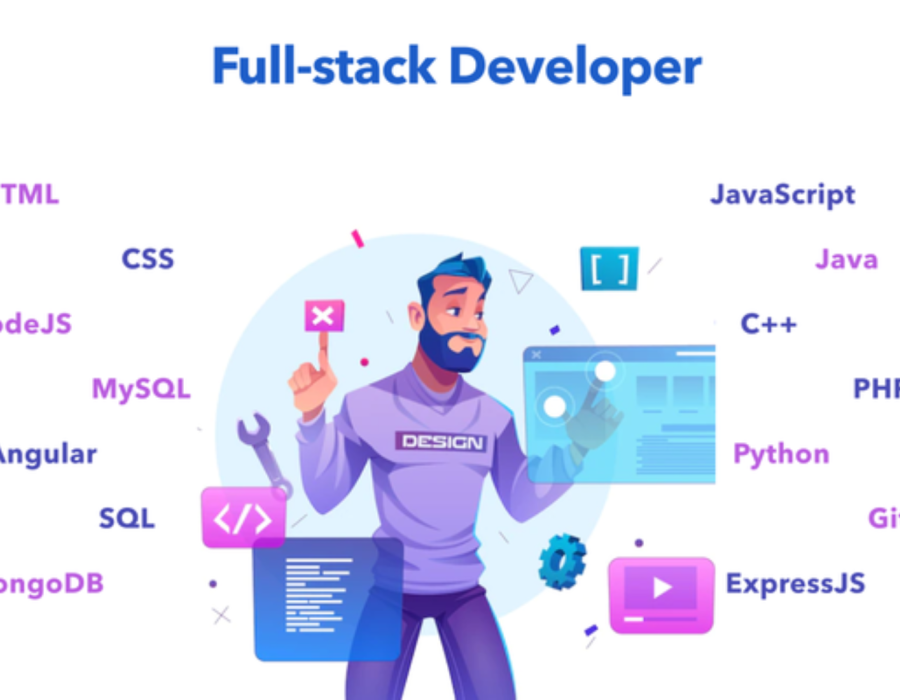In today's technology-focused world, the need for skilled developers is growing fast. One of the most popular jobs is a full stack developer. But what exactly does this mean, and why should beginners consider diving into a full stack developer course? Let's break it down in simple terms.
What is a Full Stack Developer?
A full stack developer is like a jack-of-all-trades in the web development world. They have the skills to work on both the front end (the part of a website or application you see and interact with) and the back end (the server, database, and application logic that powers the site). Essentially, they can handle everything involved in creating a web application, from designing user interfaces to managing databases and server configurations.
Why Choose Full Stack Development?
- High Demand and Job Opportunities: The tech industry is booming, and companies are constantly on the lookout for versatile developers who can manage multiple aspects of a project. Full stack developers are in high demand because they bring a broad skill set to the table, making them valuable assets to any team.
- Better Salary Prospects: Because full stack developers have a wide range of skills, they often command higher salaries compared to developers who specialize in just front end or back end development. This can be a significant motivator for beginners looking to enter the tech industry.
- Comprehensive Understanding of Web Development: By learning both front end and back end development, beginners can gain a complete understanding of how web applications work. This holistic knowledge is beneficial not only for building applications but also for troubleshooting and optimizing them.
- Versatility and Flexibility: As a full stack developer, you have the flexibility to work on various parts of a project. This versatility can be particularly appealing if you enjoy variety in your work and don't want to be confined to a single area of development.
- Increased Job Security: With a broad skill set, full stack developers are more adaptable to changing job market demands. This adaptability can lead to greater job security as you can fit into multiple roles and take on diverse projects.
What Does a Full Stack Developer Course Cover?
A full stack developer course typically covers a wide range of topics, ensuring that students gain the skills needed to build complete web applications. Here's an overview of what you can expect to learn:
- Front End Development:
- HTML/CSS: The building blocks of web development, used to create and style web pages.
- JavaScript: A powerful scripting language that adds interactivity and dynamic content to websites.
- Front End Frameworks/Libraries: Tools like React, Angular, or Vue.js that streamline the process of building complex user interfaces.
- Back End Development:
- Server-Side Languages: Languages like Node.js, Python, Ruby, or PHP used to create the server-side logic.
- Databases: Learning how to interact with databases such as MySQL, MongoDB, or PostgreSQL to store and retrieve data.
- API Development: Creating and managing APIs (Application Programming Interfaces) that allow different parts of an application to communicate with each other.
- DevOps and Deployment:
- Version Control: Using tools like Git to handle code updates and work together with other developers.
- Cloud Services: Launching applications on cloud services like AWS, Azure, or Google Cloud.
- Containerization: Using Docker and Kubernetes to create, deploy, and manage containerized applications.
- Soft Skills:
- Problem-Solving: Developing the ability to troubleshoot and resolve issues that arise during development.
- Communication: Learning how to effectively communicate with team members and stakeholders.
- Project Management: Understanding how to manage and complete projects efficiently.
Benefits of Taking a Full Stack Developer Course
- Structured Learning Path: For beginners, navigating the vast amount of information available on web development can be overwhelming. A full stack developer course provides a structured learning path, guiding students step-by-step through the necessary skills and concepts.
- Hands-On Experience: Most full stack developer courses include practical projects and assignments, allowing students to apply what they've learned in real-world scenarios. This practical experience is important for gaining confidence and skills.
- Mentorship and Support: Many courses offer access to experienced instructors and mentors who can provide guidance, answer questions, and offer valuable feedback. This support can be incredibly beneficial for beginners who may need extra help as they navigate the learning process.
- Portfolio Building: By completing projects and assignments during the course, students can build a portfolio of work that showcases their skills to potential employers. Having a good portfolio can really help you get a job.
- Networking Opportunities: Enrolling in a full stack developer course can also provide opportunities to connect with other aspiring developers and industry professionals. Making connections can lead to job offers and teamwork opportunities.
Conclusion
Taking a full stack developer course is a smart move for beginners looking to break into the tech industry. The demand for skilled full stack developers is high, and the skills learned in such a course are versatile, valuable, and can lead to rewarding career opportunities. Whether you're considering a full stack developer course in Delhi, Noida, Mumbai, Thane & all other cities in India, the structured learning path, hands-on experience, and access to mentorship can help you gain the confidence and competence needed to succeed in the dynamic world of web development. So, if you're considering a career in tech, a full stack developer course might just be the perfect starting point.





Comments